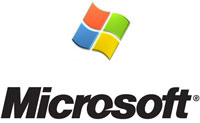Microsoft investigators uncover emerging form of click fraud

One lawsuit is a John Doe suit alleging that unidentified defendants engaged in this activity; the other lawsuit names Web publisher RedOrbit Inc. and its president, Eric Ralls, as defendants.
Click laundering, a previously unknown form of pay-per-click (PPC) advertising fraud, was uncovered by Microsoft investigators following dramatic and irregular growth in click traffic on two sites within its Microsoft adCenter network. Investigators believe that had the click laundering scheme gone undetected, the perpetrators could have defrauded advertisers of hundreds of thousands of dollars.
"Online ad fraud is evolving in sophistication all the time. Fighting it demands vigilance and dedication to an honest and secure online marketplace. We believe that a trusted marketplace is critical to Internet commerce, and Microsoft will continue to take aggressive action working with industry and law enforcement to protect our platforms, customers and advertisers," said Brad Smith, senior vice president and general counsel for Microsoft.
Beware of click fraud, click laundering
PPC fraud, also known as click fraud, is a type of Internet fraud in online advertising that occurs when a person, automated script or computer program imitates a legitimate website visitor by clicking on an ad to generate a charge-per-click without having actual interest in the target of the ad's link. Microsoft adCenter monitors click traffic carefully to prevent advertisers from being charged for non-valid clicks, and Microsoft has been active in investigating and taking action against click fraud when found, including taking legal action where necessary.
Click laundering is a newly uncovered form of click fraud in which technical measures are used to make invalid ad clicks appear to originate from legitimate sources. It is analogous to money laundering in which the origin of illegal profits is disguised as legitimate. Click laundering attempts to avoid fraud detection systems that have been put in place by the ad platform - in this case, Microsoft adCenter - to protect online advertisers. Through various means, including malware programs, fraudsters are able to trick innocent Internet users into visiting websites where they unknowingly click on advertisements. Click launderers also can further disguise the origin of those invalid clicks by using scripts and other methods to alter information that is sent to the ad platform.
Identifying emerging threats
Microsoft is filing these lawsuits to help protect its ad platform and promote the integrity of online advertising for the benefit of all legitimate advertisers, to stop the fraudulent behaviour, and to recover the damages caused by the click laundering. These actions are part of an ongoing effort by Microsoft Advertising and the Microsoft Digital Crimes Unit to work with others across the industry to identify and address emerging threats to the integrity of the online advertising ecosystem through technical and legal means.
Recently, Microsoft closed another lawsuit the company filed in 2009 regarding click fraud in auto insurance verticals and World of Warcraft, following a successful settlement with defendant Eric Lam. Terms of the settlement are confidential, but the lawsuit successfully brought the click fraud activities described in the complaint to an end and helped Microsoft further refine and evolve its approach to combating click fraud. Such cases demonstrate the evolving nature of fraud in online advertising and the need for ongoing investments across the industry to maintain a healthy Internet marketplace.
For more go to www.microsoft.com/news.





